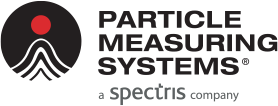Data Integrity – Data Storage & Retrieval

Data integrity means data that is accurate, complete and repeatable, which in turn ensures the product’s quality and public safety. Compliance is the goal of improving process control, product quality and Regulator confidence while reducing product defects and costs. Both of these concepts work hand-in-hand and apply to multiple areas of the pharmaceutical industry, including anyone who might expect a visit from an FDA audit team.
In the past few years, several FDA warning letters (483’s) have been issued for data integrity deficiencies in the pharmaceutical industry. Inspectors are actively trained in data integrity requirements, and strongly enforce them for falsified batch records and removal of raw data.
In the United States, the current FDA position on data storage and retrieval is outlined in 21 CFR Part 11 and the FDA Guidance: “Data Integrity and Compliance With Drug cGMP”. Electronic records/signatures that meet Part 11 requirements may be used in lieu of paper records. In Europe, the EU GMP Annex 11 is enforced. Annex 11 defines the criteria for managing electronic records and signatures. The central consideration of both the EU GMP Annex 11 and 21 CFR Part 11 documents is to ensure that records are entered correctly, cannot be tampered with and can be stored and retrieved at any time during the retention period. In each regulation, there is a strong focus on record accuracy, integrity, security, and retrieval.
Worldwide, regulators have seen a need to standardize electronic data and have done so by updating their guidelines to meet the needs of the developing industry. In addition, the Parental Drug Association (PDA), emphasizes the importance of prevention as a method to mitigate the risk of data integrity breaches. They address three primary elements:
- Training
- Validation Program
- Security
As clearly stated by the PDA, Training is considered the most important step to ensure proper usage of any software or system. Together with constant promotion of a robust Ethics Culture, the organization can ensure each and every employee, at every level, acts with integrity in the execution of their work.
See links to additional supporting resources below:
On-Demand Webinar: Assuring Data Integrity in an Environmental Monitoring System
Application Note: Webinar FAQ’s-Assuring Data Integrity in an Environmental Monitoring System
Want to read more? Jump to other released posts in this series:
Part 2 of 6: Paperless Reporting
Part 3 of 6: Secure Data Transfer
Part 4 of 6: Rapid Response to Deviation Events
Part 5 of 6: Reducing Operator Error
Part 6 of 6: Real-Time Microbial Monitoring
Don’t miss an episode of this series. Register for updates on the right column of this page.
Click here to contact our experts for questions.

